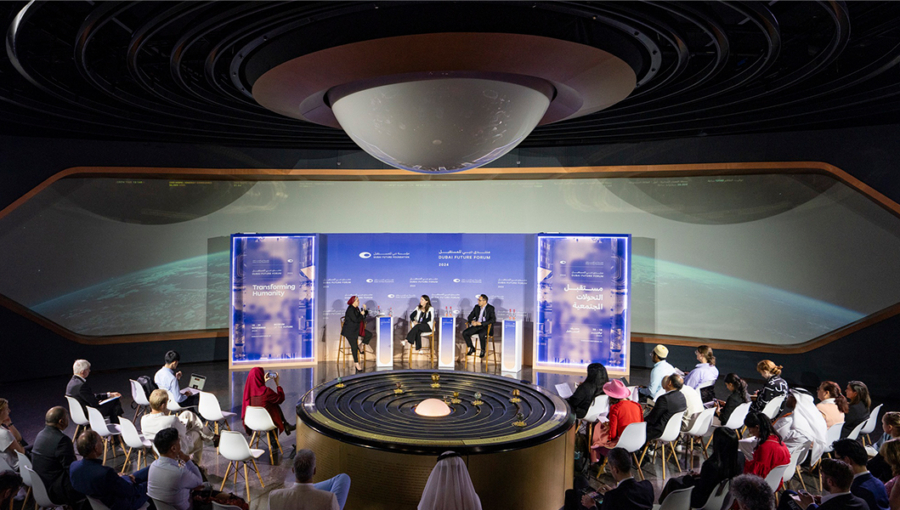Effective philanthropy is less about the destination and more about navigating change and adapting to evolving needs, delegates at the Dubai Future Forum heard during a discussion on innovative approaches to future-building.
In a session titled ‘Investing in a Better Future: What Will Be the Role of Philanthropy?’, Naghma Mulla of the EdelGive Foundation likened philanthropy to a navigational tool, such as Google Maps. “Philanthropy is about moving money from point A to point B and accountability from point B to A. In that sense, it is a lot like Google Maps; it’s not the destination that matters but understanding where we are and where we need to go,” she explained.
Mulla emphasised the importance of staying connected to communities and being responsive to their changing needs. “Philanthropy has the power to be agile, but only if we remain clued into communities and their behaviours,” she said.
Transforming Humanity
Other sessions under the Transforming Humanity theme explored how innovation and design can reshape the future. In ‘Future by Design: How Materials Are Shaping Our World,’ panellists discussed breakthroughs in material science and their potential to revolutionise industries. The panel ‘Network Waving: How Can the Practice of Linking Past, Present, and Future Lead to Systemic Change?’ examined how insights from history and present trends can inform sustainable change.
Empowering Generations
Under the theme of Empowering Generations, the session ‘Power of Traditions: How Can Myths Unlock Innovation?’ explored the value of combining cultural heritage and forward-thinking to build a philosophy of co-creation.
In ‘The Control Illusion: Are Humans Really Shaping the Future?’ and ‘The Grief Stage: How Can Society Overcome Future Challenges?’, panellists debated how emotions and human limitations influence future outcomes.
Dr Steven Lichty of Frontline Futures highlighted the constructive potential of communal grief during ‘The Grief Stage.’ “We need to create culturally contextualised spaces for grief—places where emotions can emerge and be transformed into something constructive,” Lichty noted.
The session ‘Echoes of Tomorrow: What Impact Can Science Fiction Have on Imagining the Future?’ featured winners of the forum’s sci-fi writing competition, who shared their creative visions for the future.
Meanwhile, ‘Beyond the National: How to Future at the Multilateral, Global, and Local Levels?’ stressed the importance of curiosity and vision in future-building efforts.
Additionally, insights were shared during ‘Foresight in Practice: What Can We Learn from Around the Globe?’, showcasing innovative approaches to long-term planning and resilience.
The Dubai Future Forum, held from 19–20 November at the Museum of the Future, is the world’s largest gathering of futurists. The event has attracted over 2,500 experts from 100 countries to discuss and debate the trends shaping humanity’s future.
For more information about the Dubai Future Forum, please visit www.dubaifuture.ae/dubai-future-forum-2024.
